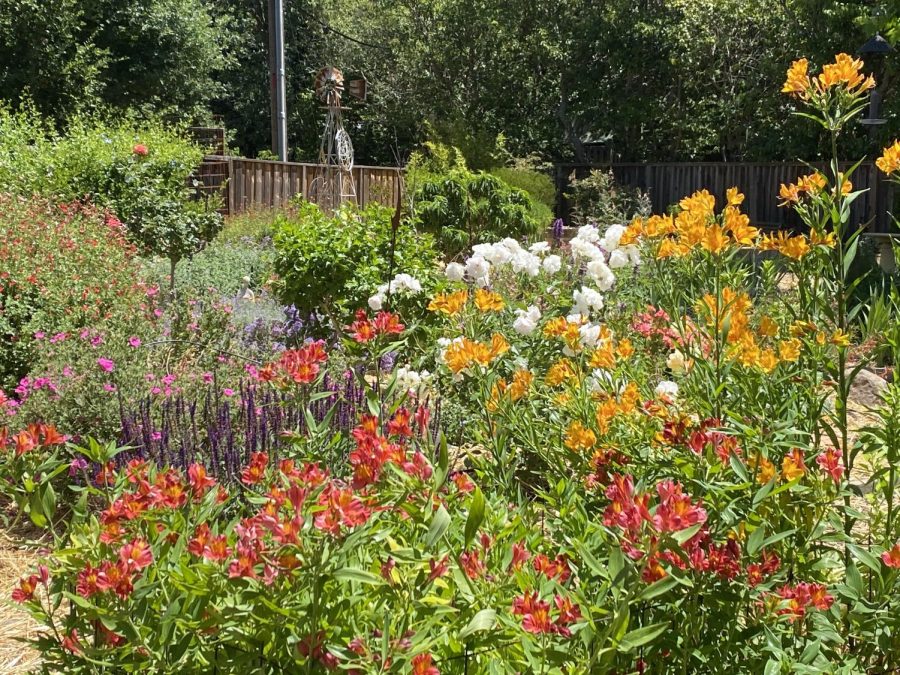Mr. Clarke cultivates his garden
Photo used with permission of David Clarke
There are a myriad of factors that must be considered when planting.
May 3, 2022
Plants are picky. From the amount of sunlight they receive to the pH level of their soil, there are a myriad of factors that must be considered when planting. For English teacher David Clarke, monitoring plants’ soil preferences is one of the many things he does to care for his quarter-acre home and garden.
Every week, he spends 20 to 30 hours tending his garden, from daily watering to weekend weeding, winter preparing to spring tidying. Deciduous, evergreens, fruits trees, vines, vegetables, succulents, shrubs, annuals, perennials, bulbs and more — he has them all.
“Some people might find this garden a little chaotic, but that’s part of the charm — to constantly learn about new plants and what they want,” Clarke said.
His journey with gardening started with his construction work, where he worked on interior construction and landscaping. When he bought his own home more than 20 years ago, he turned the fixer-upper into a dream home inside and out, remodeling the house’s interior and beautifying the yards.
“All the jobs I have had since my 30s have been academic, which is very much desk and intellectual work,” Clarke said. “So it’s very nice to have physical outlets as well. I got into gardening because although it’s delayed gratification, you produce your own reward as you go along.”
He spends entire weekends among his plants, trimming, weeding and harvesting the fruits of his labor. In his home, nothing is ever wasted. Clarke and his wife compost kitchen scraps in worm bins and process all wood clippings in a wood chipper for landscaping purposes.
Everything in Clarke’s garden is carefully thought out. He advises aspiring gardeners to plan years ahead of how they want their garden to look before beginning to plant, especially for long-term projects like trees. He also strongly encourages them to find mentors by communicating with other fellow gardeners in their community to shorten the learning curve, something he wishes he had done when he first began gardening.
“Many people don’t know this, but irises have a really strong scent and people breed them for it,” Clarke said. “I have one that smells like root beer, and the standard scent is kind of like sour cream frosting. It is really intense. You should go smell it.”



































































